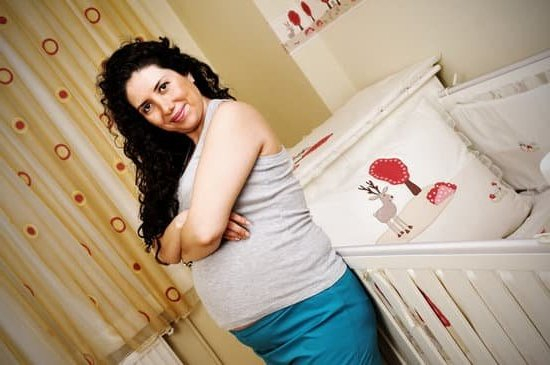Pregnancy is an exciting and life-changing time for many women, but for those who are trying to conceive, it can be a period filled with anticipation and uncertainty. One of the most common questions that arises during this time is: what is the earliest sign of pregnancy? Understanding the early signs of pregnancy can help women identify potential changes in their bodies and take appropriate steps to confirm whether they are indeed pregnant.
Before a missed period or positive pregnancy test, there are several subtle changes that can indicate pregnancy in its early stages. From changes in breast sensitivity to heightened sense of smell, these signs may vary from woman to woman. Understanding these early pregnancy signs is crucial for those who are eagerly awaiting confirmation of a new addition to their family.
In this article, we will explore the earliest signs of pregnancy and provide insight into how these changes occur. By understanding the physiological and hormonal shifts that take place during early pregnancy, women can become more attuned to their bodies and recognize the early signs that may indicate they are expecting. Let’s delve into the various markers of early pregnancy and provide guidance on what steps to take if these signs arise.
Understanding the Menstrual Cycle and Implantation
The menstrual cycle plays a crucial role in understanding the earliest signs of pregnancy. Many women may not be aware that they are pregnant until they miss their period, but there are subtle signs that could indicate pregnancy before a missed period. One of the earliest signs of pregnancy is implantation bleeding, which occurs when the fertilized egg attaches itself to the uterine wall.
This can cause light spotting or brown discharge, which can be easily mistaken for a light period. However, implantation bleeding typically occurs 6-12 days after conception, making it one of the earliest indicators of pregnancy.
Another early sign of pregnancy related to the menstrual cycle is changes in cervical mucus. After conception, some women may notice an increase in cervical mucus, which becomes thicker and stickier than usual. This is known as the “leukorrhea of pregnancy” and is caused by increased blood flow to the pelvic area due to hormonal changes associated with pregnancy.
Understanding ovulation and conception is essential when looking for early signs of pregnancy. By tracking ovulation through methods such as basal body temperature charting or using ovulation predictor kits, women can pinpoint the time when they may have conceived. This can also help identify potential early signs of pregnancy, such as breast tenderness or fatigue shortly after ovulation.
Overall, understanding the menstrual cycle and implantation process is key to recognizing early signs of pregnancy before a missed period. By being aware of these subtle changes in their bodies, women can take necessary steps to confirm their suspicions and seek proper prenatal care if needed.
Changes in Breast Sensitivity and Size
During the early stages of pregnancy, many women experience changes in their breasts, including increased sensitivity and changes in size. These changes are often one of the earliest signs of pregnancy, and can start as early as one to two weeks after conception. Understanding these changes can help women recognize the signs of pregnancy and seek proper medical care.
Breast Sensitivity
One of the earliest signs of pregnancy is increased breast sensitivity. Many women report that their breasts feel tender or sore to the touch, similar to what they may experience before getting their period. This tenderness is caused by hormonal changes as the body prepares for possible pregnancy. It’s important to note that not all women will experience this symptom, but it is a common occurrence.
Changes in Breast Size
In addition to increased sensitivity, many women also notice changes in their breast size during early pregnancy. Breasts may become fuller and more swollen as blood flow increases in preparation for breastfeeding. Some women may even notice visible veins on their breasts as a result of these changes. These physical changes can be a clear indication that a woman is pregnant, especially when experienced alongside other common symptoms such as fatigue and nausea.
Overall, paying attention to these early signs of pregnancy can be crucial for those trying to conceive or those concerned about unplanned pregnancies. If you suspect that you may be pregnant based on these symptoms, it’s important to take a home pregnancy test or visit a healthcare provider for confirmation and guidance on next steps.
Fatigue and Tiredness
Feeling tired and fatigued is one of the earliest signs of pregnancy that many women experience. This is often attributed to the hormonal changes happening in the body as it prepares for pregnancy. During early pregnancy, the body produces more progesterone, which can lead to feelings of exhaustion and a need for more rest.
It’s important to note that fatigue and tiredness can also be caused by other factors such as stress, poor sleep, or an underlying medical condition. However, if you are experiencing extreme tiredness along with other early pregnancy symptoms, it may be a good idea to take a pregnancy test.
If you suspect you might be pregnant, here are some common signs of fatigue and tiredness:
- Feeling exhausted even after a full night’s sleep
- Needing frequent naps throughout the day
- Difficulty staying awake or focusing on tasks
It’s important to listen to your body during this time and give yourself permission to rest when needed. Taking naps, going to bed earlier than usual, and incorporating relaxation techniques into your daily routine can help alleviate some of the fatigue associated with early pregnancy. If you are concerned about your energy levels or experiencing extreme fatigue that impacts your daily life, it’s important to consult with a healthcare provider to rule out any underlying health concerns.
Remember, each woman’s experience with early pregnancy signs can vary, so it’s essential to pay attention to how your body is feeling and seek support from healthcare professionals if needed.
Nausea and Morning Sickness
One of the earliest signs of pregnancy that women may notice is nausea and morning sickness. This typically occurs around the 6-week mark, but some women may experience it as early as 2 weeks after conception.
Nausea and morning sickness are caused by hormonal changes in the body, particularly an increase in estrogen levels. These symptoms can vary in intensity from mild queasiness to severe vomiting, and they can occur at any time of the day, not just in the morning.
In a study published in JAMA Internal Medicine, it was found that about 70-80% of pregnant women experience nausea during their pregnancy. The same study also suggested that morning sickness may be a sign of a healthy pregnancy because it is associated with a lower risk of miscarriage. While these symptoms can be uncomfortable, they are usually considered normal and are often seen as a positive indicator of a healthy pregnancy.
It’s important for pregnant women experiencing severe nausea and vomiting to consult with their healthcare provider to ensure they are properly managing their symptoms and staying nourished for both themselves and their growing baby. In some cases, extreme morning sickness known as hyperemesis gravidarum may require medical intervention to avoid dehydration or malnutrition.
Heightened Sense of Smell and Taste
During the early stages of pregnancy, many women may experience a heightened sense of smell and taste. This can be one of the earliest signs of pregnancy and is often attributed to the hormonal changes taking place in the body. Some women may find that certain smells or tastes become more intense or even bothersome, while others may develop specific food cravings due to these changes.
The increased sensitivity to smell, known as hyperosmia, is believed to be linked to hormonal changes that occur during pregnancy. Estrogen, in particular, is thought to play a role in heightening the sense of smell. This can result in everyday scents becoming much stronger and potentially causing discomfort for some pregnant women. Similarly, changes in taste perception can lead to an aversion to certain foods or a desire for new flavors.
It’s important to note that while a heightened sense of smell and taste can be an early sign of pregnancy for some women, it is not a definitive indicator on its own. However, when experienced alongside other early pregnancy symptoms such as fatigue and breast changes, it may prompt individuals to take a pregnancy test or consult with a healthcare provider to confirm their suspicions.
Frequent Urination and Bloating
One of the earliest signs of pregnancy is frequent urination and bloating. This can start as early as six weeks into the pregnancy due to hormonal changes that increase blood flow to the kidneys, leading to more urine production. Bloating is also a common symptom of early pregnancy, caused by the hormonal changes that slow down digestion and cause gas buildup. These symptoms can be quite uncomfortable for women, but they are often a positive indication of pregnancy.
Many women may not realize that frequent urination and bloating are actually early signs of pregnancy, as they can be easily dismissed as premenstrual symptoms. However, if accompanied by other signs such as a missed period or breast tenderness, these symptoms may indicate a pregnancy has occurred.
It’s important to note that every woman’s experience with pregnancy is different; some may experience frequent urination and bloating very early on, while others may not experience it at all. It’s essential to pay attention to your body and consult with a healthcare provider if you suspect you might be pregnant.
| Early Pregnancy Symptom | Timeline |
|---|---|
| Frequent Urination | As early as 6 weeks into pregnancy |
| Bloating | Common in early stages of pregnancy |
Mood Swings and Emotional Changes
During the early stages of pregnancy, mood swings and emotional changes are common symptoms experienced by many women. These emotional fluctuations can be attributed to the hormonal changes that occur in a woman’s body during pregnancy. It is important to understand that not all women will experience mood swings, and the intensity and frequency of these changes vary from person to person.
Reasons for Mood Swings and Emotional Changes
- The surge in hormones, particularly estrogen and progesterone, can impact neurotransmitters in the brain, leading to mood swings and emotional sensitivity.
- Stress and anxiety about the pregnancy, including concerns about health, finances, or lifestyle adjustments, can also contribute to emotional changes.
- Physical discomfort due to other early signs of pregnancy, such as nausea or fatigue, can affect a woman’s emotional well-being.
Coping Strategies for Mood Swings
- Engage in activities that promote relaxation and reduce stress levels, such as yoga, meditation, or deep breathing exercises.
- Communication with a partner or trusted loved ones about emotions can provide support and understanding during this time.
- Maintain a healthy lifestyle through balanced nutrition, regular exercise, and adequate sleep to minimize the impact of hormonal fluctuations on emotions.
It is essential for women experiencing extreme or prolonged mood swings to seek medical advice from a healthcare professional. Consulting with a doctor can help address any concerns and provide guidance on managing emotional changes during early pregnancy. Knowing what is the earliest sign of pregnancy is important for recognizing these symptoms as part of the natural process of conception and fetal development.
Conclusion and Next Steps After Noticing Early Pregnancy Signs
In conclusion, the earliest sign of pregnancy can vary from woman to woman, but it is important to be aware of the most common symptoms. Understanding the changes in your body and being attentive to any unusual symptoms can help you recognize early signs of pregnancy.
Changes in breast sensitivity and size, fatigue and tiredness, nausea and morning sickness, heightened sense of smell and taste, frequent urination and bloating, as well as mood swings and emotional changes are all potential indicators of pregnancy.
Once you have noticed these early signs of pregnancy, it is important to take the next steps. The first step should be to take a home pregnancy test to confirm your suspicions. If the test results are positive, it is essential to make an appointment with a healthcare provider for further confirmation and to begin prenatal care. Prenatal care is crucial for both the mother’s health and the development of the baby.
It is also important to make lifestyle adjustments such as avoiding alcohol, smoking, certain medications or substances that could harm the developing fetus. Additionally, maintaining a healthy diet and regular exercise routine can benefit both the mother and baby. It is essential to seek support from your partner or loved ones during this time as well. Recognizing early signs of pregnancy allows for early intervention and proper prenatal care which can positively impact both maternal and fetal outcomes.
Frequently Asked Questions
What Are Symptoms of Pregnancy at 1 Week?
At 1 week of pregnancy, it’s unlikely to experience any noticeable symptoms. Some women may start feeling mild cramping or spotting due to implantation of the fertilized egg, but otherwise, most pregnancy symptoms emerge later on.
How Early Can You Tell if You Are Pregnant?
Early pregnancy detection can occur as soon as 7-10 days after conception with sensitive home pregnancy tests. However, for the most accurate results, it’s best to wait until you miss your period before testing for pregnancy.
How Soon Do Early Pregnancy Symptoms Start?
Early pregnancy symptoms may start as soon as a week after conception, though many women don’t notice any changes until several weeks into their pregnancy. Symptoms like fatigue, nausea, breast tenderness, and frequent urination can start appearing within the first few weeks after conception.

Welcome to my fertility blog. This is a space where I will be sharing my experiences as I navigate through the world of fertility treatments, as well as provide information and resources about fertility and pregnancy.





